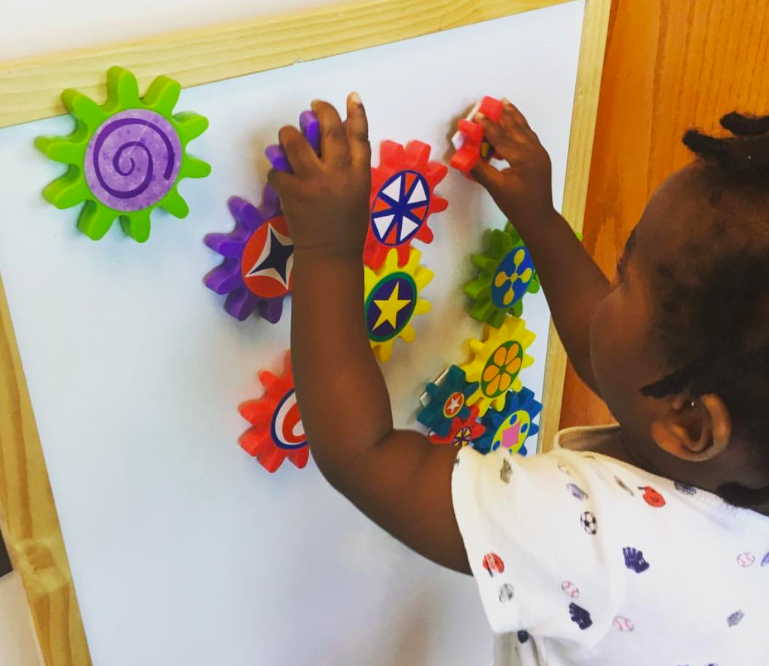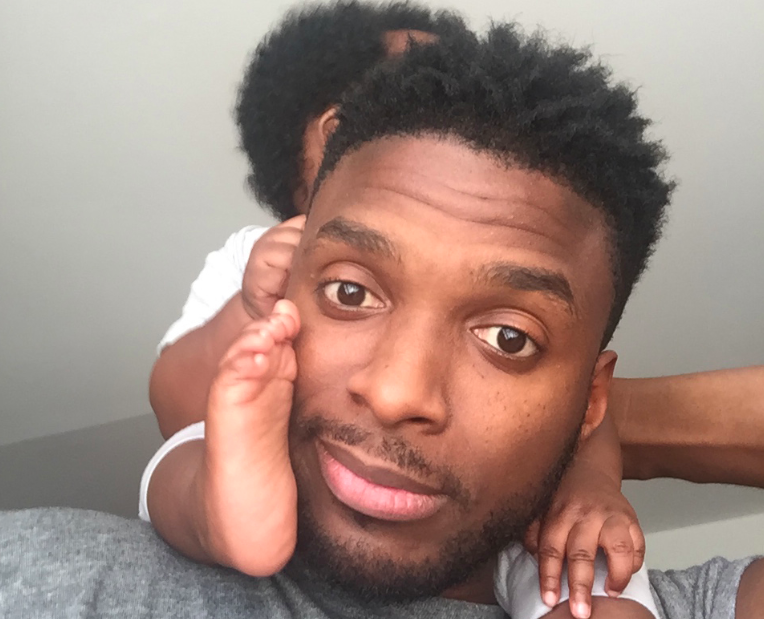Writer and Splimm co-founder Kevin Cranford speaks on the complexities of being a pot-toking-parent – who’s African American.
Originally Published on Splimm

As low as I get thinking about prohibition and its effects on black and brown people, I get high knowing we are on the precipice of a new country as cannabis legalization spreads.
Being a father has been the wildest ride I’ve been on in my 32 years on earth. I could have never imagined the emotional and physical highs and lows my wife and I would experience in our first attempt to raise a happy, well-adjusted young one. In my first two years as a parent, I’ve shared the highs of first steps and first words and the lows of setting a bedtime for them while not getting much sleep myself. As a father, I’ve seen myself grow as a person, becoming more selfless, empathetic, and caring. I’ve also grown more worried and more concerned. I’m certain other fathers feel these things too. What school to choose? Are they eating too much? Too little? Is their poop supposed to be that color?
But for a black parent there’s an added level to the worries of everyday parenting.
The War on Drugs and Black Bodies
I worry because I’m the father of a beautiful black boy in a society where being a black man intimidates some, and is criminalized by others. I worry because, being a 30-year-old black man, I personally know what the war on drugs does to black bodies. As a black cannabis consumer I’ve lived with those feelings of being criminalized. That’s what led me to become a cannabis activist and to fight for the end of prohibition.
THE LONG SHADOWS OF CANNABIS PROHIBITION AND LIVING WITHIN THE WAR ON DRUGS ARE WORRIES NOW NOT JUST FOR MYSELF AS A BLACK SMOKER, BUT ALSO FOR MY SON.
Being a person of color under the specter of cannabis prohibition has been a challenge I’ve had to negotiate while coming of age. Policing practices such as “stop and frisk,” no knock warrants, and the fear of being pulled over for “driving while black” have given black people in this country a healthy fear of police.
When I was younger, I remember my father sitting me down and having “the talk” with me about how to negotiate these truths. I’ll have to sit my son down too to have the same talk. Combine that with the almost daily videos of unarmed black people being killed by law enforcement, you’d almost be foolish to be black and break any law in this country. But that’s what we black and brown cannabis smokers do. And numerous studies have shown how cops react to those black smokers who have been caught breaking the law: an arrest rate disproportionately high when compared to their white counterparts. Even in states where cannabis is legalized, black and brown people are still arrested at a higher rate.
Thousands of Black Fathers and Sons
This was the reality as I grew up in the 2000’s. I too became ensnared in the war on drugs when I was arrested in January of 2004. A white friend and I were stopped at a Main Street convenience store in our Connecticut suburb. He, the driver, was escorted, standing, from his vehicle. I, the passenger, was pulled through my seatbelt, thrown chest first to the asphalt, and handcuffed.

Ultimately I was fortunate to have the whole situation expunged due to Connecticut’s Youthful Offender law. I got off with paying $300 for eight one-hour drug classes and 30 hours of community service. Generations of others weren’t as lucky, with thousands of black fathers and sons being thrust into the criminal justice system and seldom ever escaping it. The long shadows of cannabis prohibition and living within the war on drugs are worries now not just for myself as a black smoker, but also for my son.
On the Precipice of a New Country
But like I said, parenting has its highs and lows, they’re two sides of the same coin. As low as I get thinking about prohibition, I get high knowing we are on the precipice of a new country as cannabis legalization spreads. I’m optimistic about the opportunities legalization will bring and the positives changes that will come with the ending of the drug war. We currently have nine states experimenting with legalization, and 13 more have decriminalized cannabis. This means over half the population won’t be arrested for cannabis anymore.
I’M CONFIDENT MY SON WILL GROW UP IN A SOCIETY WHERE BLACK CANNABIS USERS DON’T FEEL STIGMATIZED OR HARASSED BY COPS, AND CAN BE LEFT ALONE TO RESPONSIBLY ENJOY CANNABIS.
Those I’ve met in this fight get me high on the hope that my worries may lessen in time. Organizations like SuperNova Women of Oakland, California and Cannabis Cultural Association, based in New York City, give me continued hope that young black and brown activists are fighting for the inclusion of black and brown people and women in this billion dollar industry. Both groups travel the country speaking at state houses to legislators and at community events to educate often overlooked audiences to the medical benefits of cannabis and the harms of prohibition.
Organizations like these inspire me because I know, with them out there, we’re moving forward and not returning to the destructive policies of the past. With organizations made of people that look like me, working in the cannabis space helps me ensure that my voice and my son’s voice will be heard by those in power and by those shaping this new industry.
Freedom from the Mistake of Prohibition
I also draw hope from legislation passed in cities like Seattle and states like California, where those with past cannabis convictions can have them expunged. This action frees people from the mistakes of their past (and the whole mistake of prohibition) and opens up their future to more positive possibilities. Organizations like Minority Cannabis Business Association have taken new laws and turned them into community expungement fairs in an effort to help the most people possible. I’m high on the fact that, as the years progress, more laws will be created (and erased) that allow for an inclusive industry, as diverse as its customer base.

Being a black cannadad is challenging. I’m constantly conscious of the effects the war on drugs has had on me. I’m conscious of my worries that my son will bear the same scars, even as I hope he does not make my fears his own. But at the same time, I’m optimistic. States are falling like dominoes to legalize cannabis, for the mix of social justice and budgetary reasons. It makes me feel good to know that there are organizations doing the hard work to ensure equity in the emerging industry. I’m inspired by the work of progressive city councils and state assemblies that are passing legislation to undo the harms caused by cannabis prohibition.
This gives me hope we are not going backwards. I’m confident my son will grow up in a society where black cannabis users don’t feel stigmatized or harassed by cops, and can be left alone to responsibly enjoy cannabis. I look forward to rolling a joint with my adult son and telling him how his father was arrested for pot.
And he’ll look at me in confusion and say: “Dad, did they really used to do that?”

